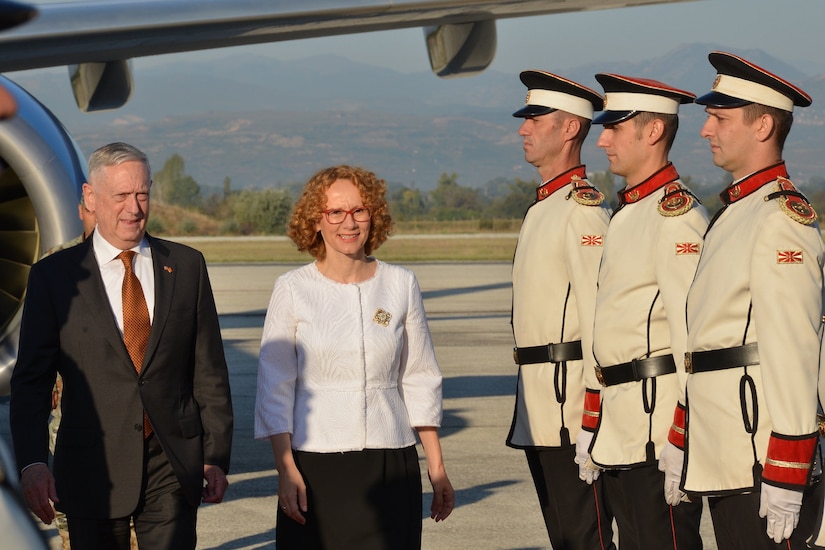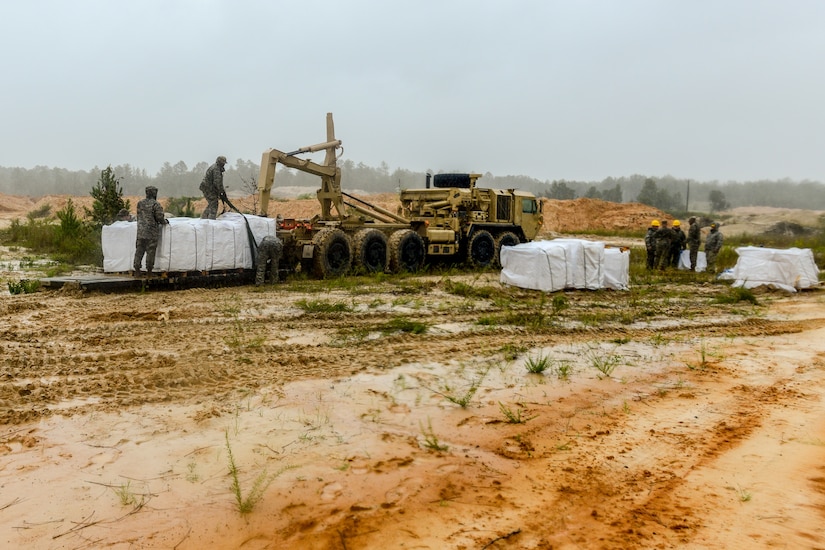By Jim Garamone, DoD News, Defense Media Activity
WASHINGTON -- Defense Secretary James N. Mattis praised
Macedonian Prime Minister Zoran Zaev today, saying the country is a
“stabilizing force” in the Balkans.
Mattis made a lightning visit to Skopje and met with Zaev,
President Gjorge Ivanov and Defense Minister Radmila Shekerinska. It was the
secretary’s first visit to the country.
Mattis arrived as the nation prepares for a vote on whether
to change its formal name from the Republic of Macedonia to the Republic of
North Macedonia. The name change is a result of negotiations with neighboring
Greece that both prime ministers signed in June in Prespa, Macedonia. Greece
has blocked Macedonia from joining NATO and the European Union under its
current name, which is also the name of a northern Greek province.
The vote will clear the way for the country to join NATO, a
move Russia strongly opposes.
“The Prespa Agreement, alongside key reforms you are
implementing under your strategic defense review, unlocks your NATO accession
process and allows you, our Macedonian friends, to determine your own future in
institutions made up of like-minded countries,” Mattis told the prime minister.
The secretary said that in joining NATO, the country would
“gain an equal seat at the table of the most successful military alliance in
history, alongside 29 other countries committed to protect you and your
security, spurring economic prosperity and increased foreign investment, as
well as strengthened security.”
The secretary thanked Zaev for Macedonia’s contributions to
stability and security. “Your country has proven a reliable security partner
and a valued contributor to global peace and security, serving as a leader in
regional security initiatives, like the U.S.-Adriatic Charter and the Balkan
Medical Task Force, and participating in European Union peacekeeping, United
Nations and NATO operations around the world,” Mattis said at a meeting with
the prime minister.
The secretary specifically thanked Zaev for Macedonia’s
troop contribution to NATO’s Resolute Support Mission in Afghanistan. The
Macedonian military has about 50 service members in Afghanistan.
“We also appreciate your offer to host U.S. forces at the
Krivolak training area in your country,” the secretary said. “The close
cooperation between our countries is also growing to reflect modern challenges,
as we plan to expand our cybersecurity cooperation to thwart malicious cyber
activity that threatens both our democracies.”
Mattis praised Zaev for his negotiations with the Greeks.
“The United States recognizes this agreement took hard work and patient
diplomacy on both sides, compromises on both sides,” Mattis said. “Compromise
is always hard.”








